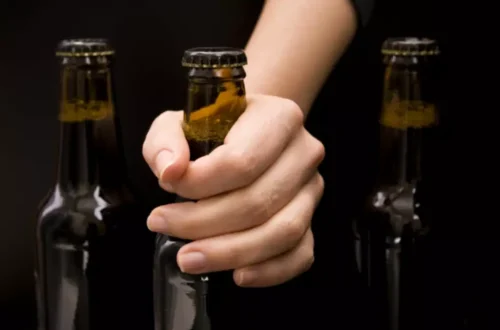
It is important to remember that your body is going through a lot when you first stop drinking alcohol. The brain is so good at adjusting to changes regarding what you put into your body that it figures out how to function during times when you are drinking heavily. Once you take away the chemical reactions that alcohol causes, your brain has to refigure out how to work normally again.
- These resources can all be great tools for treating alcohol addiction and brain fog.
- Brain fog and long-term alcohol misuse can increase vulnerability to mental health disorders such as anxiety and depression.
- When the neurotransmitters are no longer suppressed, but are used to working harder to overcome the suppression, they go into a state of overexcitement.
Find Alcohol Addiction Rehab
Benzodiazepines like Librium (chlordiazepoxide) and Ativan (lorazepam) may also help to prevent minor withdrawal symptoms from becoming more severe. Other drugs a healthcare provider might prescribe alcohol brain fog include anxiolytics , vitamins, and suboxone. In addition to experiencing Stage 2 symptoms, those with severe alcohol withdrawal experience severe anxiety and moderate to severe tremors.
How long does it take for your brain to go back to normal after drinking?
There are two types of alcohol withdrawal, acute withdrawal and post-acute withdrawal, also known as ‘PAWS’. Acute withdrawal occurs in the first hours and days after you stop drinking, whereas PAWS can last for weeks or even months. Consult a healthcare professional to get effective guidance on overcoming brain fog and other AUD withdrawal symptoms. Several rehab detox centers are there to provide personalized treatment plans. They can help you quit drinking in a safe environment and prevent serious symptoms of alcohol withdrawal. It’s important to address issues with heavy drinking in a medical environment rather than trying it on your own.
Get Professional Help
There are a number of things you can do to help relieve the symptoms of brain fog. While alcohol fog is not a life-threatening condition, it can be a sign of an underlying health problem that will definitely benefit from early diagnosis and early recovery. The direct effects of alcohol on the brain are thought to play a significant role in alcoholic brain fog. Our team is available 24 hours a day, 7 days a week to answer any questions you may have.
What factors influence brain fog recovery time?
- One effective alcohol addiction treatment is through cognitive behavioral therapy (CBT).
- Alcohol withdrawal symptoms can be greatly reduced or even eliminated with proper medical care.
- Brain fog, for example, is sometimes viewed as one of these lesser-known effects.
- Counseling and therapy deal with your addiction’s psychological and emotional aspects.
- Your doctor may recommend taking supplements to address these deficiencies.
- Alcohol-related variables and withdrawal history are summarized in Table 1.
Still, brain fog can be a challenging problem that requires a solutions-focused approach for improvement in symptoms. Nobody wants to struggle with the confusion of brain fog, and sobriety is the first step in reducing the symptoms of this problem. Brain fog from alcohol typically lasts for 8 to 24 hours after drinking. However, the time frame can be longer for people who regularly consume heavy amounts of alcohol and then stop drinking.
These investigations highlighted the role of the alcohol consumption level and the number of previous detoxifications (Duka et al., 2004) in the development of seizures and/or delirium tremens. To our knowledge, little is known regarding the effect of mild-to-moderate AWS on cognitive performance, GM volume and sleep quality in recently detoxified AUD patients. Alcohol-induced brain fog, a common yet overlooked symptom of alcohol withdrawal, can last up to an impressive 26 weeks after you make the decision to quit drinking. However, the duration varies from person to person and is influenced by several factors like the severity of alcohol abuse, mental health, and lifestyle habits. During alcohol withdrawal, the glutamate-mediated excitotoxicity induces neuronal death, which may explain structural brain alterations observed early in abstinence in AUD patients (Tsai and Coyle, 1998).
- As a therapist that helps people stop drinking, I often hear from clients that they want to make a change, but are intimidated by the potential of experiencing withdrawal symptoms.
- We’ve all heard the term “brain fog” thrown around, but when it comes to alcohol, this fog can become a lingering haze that disrupts your life.
- You can promote healthy changes in the brains and behaviors of patients with AUD by encouraging them to take a long-term, science-based approach to getting better.
- Set aside 30 minutes before retiring to engage in a wind-down routine, such as taking a warm bath or meditating.
- We then describe evidence-based treatments you can recommend to patients to help the brain, and the patient as a whole, to recover.
- We also found that AUD patients with moderate-AWS reported higher alcohol consumption during the month preceding withdrawal than those with mild-AWS.
Alcohol withdrawal timeline

Get Enough Sleep

